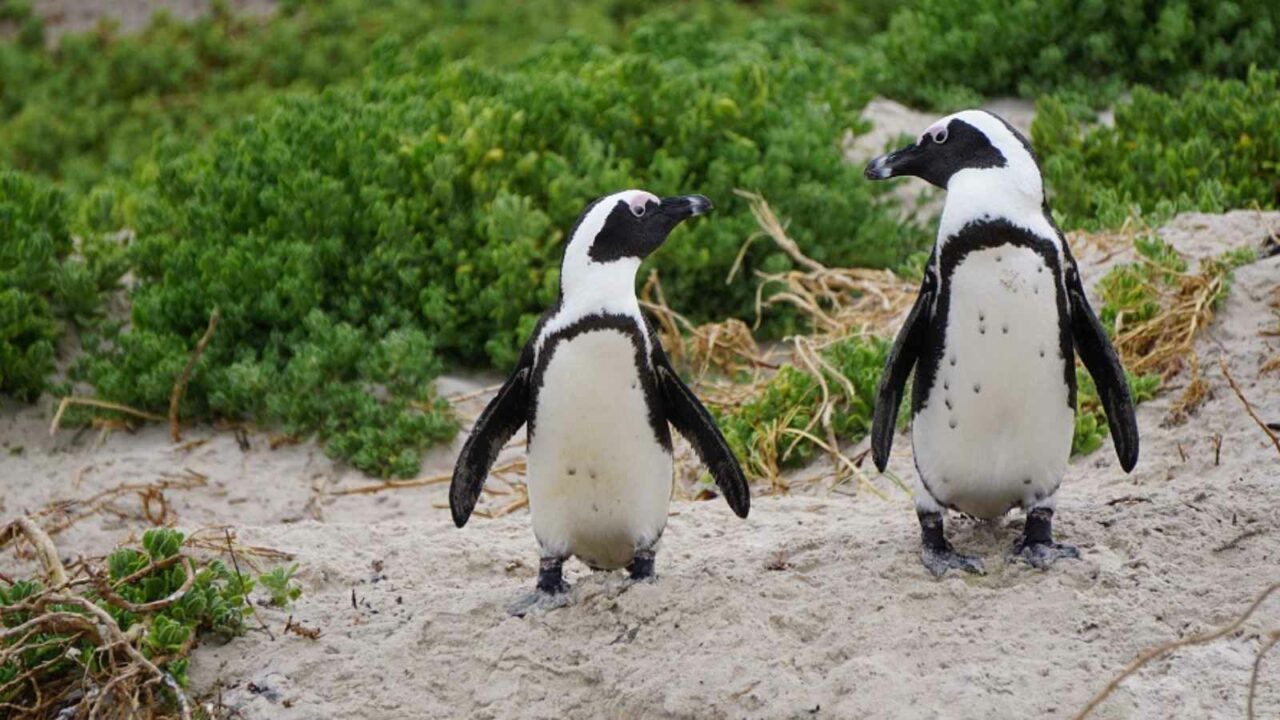International African Penguin Awareness Day 2022: The African penguin is a species of penguin endemic to southern Africa. It is also known as the black-footed penguin or the jackass penguin for its donkey-like bray. Although the African penguin is not currently endangered, it is classified as vulnerable due to a significant decrease in population over the past few decades. In honor of International African Penguin Awareness Day on October 15, we’re taking a closer look at this amazing animal and what we can do to help protect them.
What is African Penguin Awareness Day?
This day raises awareness about the plight of the African penguin, which is an endangered species. The day also promotes ways to help these birds, such as by supporting conservation efforts or becoming a foster parent to a penguin chick.
The African penguin is a species of penguin that is native to Africa. These birds are found on the coastlines of South Africa and Namibia. African penguins are black and white with a distinctive pink band on their chest. These birds grow to be about 28 inches tall and weigh between 4 and 8 pounds.
African penguins are endangered due to a number of factors, including oil spills, overfishing, and climate change. As a result of these threats, there are only an estimated 25,000-30,000 African penguins left in the wild. To help this species, people can support conservation efforts or become a foster parent to a penguin chick through organizations such as the African Penguin & Seabird Sanctuary (APSS).
Penguin Awareness Day 2022: History and facts about penguins
INTERNATIONAL AFRICAN PENGUIN AWARENESS DAY DATES
International African Penguin Awareness Day is observed every second Saturday of October.
| Year | Date | Day |
|---|---|---|
| 2021 | October 9 | Saturday |
| 2022 | October 15 | Saturday |
| 2023 | October 14 | Saturday |
| 2024 | October 12 | Saturday |
| 2025 | October 11 | Saturday |
History of African Penguins
The African Penguin is a species of penguin that is native to the coasts of South Africa and Namibia. The African Penguin is also known by its other names, the Black-footed Penguin and the Jackass Penguin. It is the only penguin species that breeds on the African continent.
The African Penguin was first described by French naturalist Charles Lucien Bonaparte in 1833. Its scientific name, Spheniscus demersus, means “wart-necked little diver”. The African Penguin is closely related to the Magellanic Penguin of South America, and the two species are sometimes considered to be subspecies of each other.
The African Penguin is a small penguin, with an average body length of 50 cm (20 in) and a weight of 2–3 kg (4.4–6.6 lb). It has black upperparts, white underparts, and a band of black feathers around its throat called a bib. Its bill is pink with a black tip, and its legs are pink. Adult penguins have blue-grey eyes; juveniles have brown eyes which darken as they mature.
African Penguin Facts
The African Penguin is a species of penguin that is native to Africa. They are also known as Black-footed Penguins or Jackass Penguins due to their donkey-like braying call. African Penguins are the only species of penguin that is found in Africa and they are currently listed as endangered.
African penguins grow to be about 28 inches tall and they weigh between 4 and 6 pounds. Their diet consists mostly of fish, but they will also eat krill and other small crustaceans. African penguins typically live to be 20 years old in the wild, but they can live up to 30 years old in captivity.
African penguins mate for life and they nest on the ground instead of in trees like some other species of penguins. Females lay two eggs per clutch and incubate the eggs for about 40 days before they hatch. The chicks stay with their parents for about 4-6 weeks before venturing out on their own.
African penguins are social birds and they often gather in large colonies near breeding sites. These colonies can range in size from a few pairs to tens of thousands of birds. Unfortunately, African penguin populations have declined sharply over the past few decades due to a variety of factors including habitat loss, overfishing, and oil spills.
How You Can Help African Penguins
As the world celebrates International African Penguin Awareness Day on October 15 this year, there are a few things you can do to help this species.
One way to help is by supporting organizations that work to conserve African penguins and their habitat. The African Penguin and Seabird Sanctuary, for example, is a rehabilitation center in South Africa that works to rescue, rehabilitate, and release injured or oiled penguins back into the wild. You can donate to their cause or visit their website to learn more about what they do.
Another way to help is by reducing your plastic use. A lot of the plastic that ends up in our oceans eventually washes up on beaches, where it can be mistaken for food by penguins and other animals. This can lead to them choking or becoming entangled. You can help reduce the amount of plastic in our oceans by recycling properly, avoiding single-use plastics, and supporting businesses that are working to reduce their plastic footprint.
Finally, you can raise awareness about African penguins and their plight. Share information about them with your friends and family, write about them in school papers or on social media, or even start your own blog or podcast dedicated to spreading the word about these amazing animals. Every little bit helps when it comes to conservation!
Conclusion
As we continue to celebrate International African Penguin Awareness Day, let us remember the importance of protecting these beautiful creatures. African penguins are an important part of the ecosystem and play a vital role in keeping the balance of nature in check. We must do our part to ensure their survival for future generations to enjoy.


















